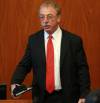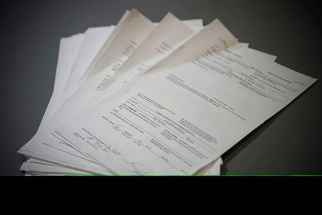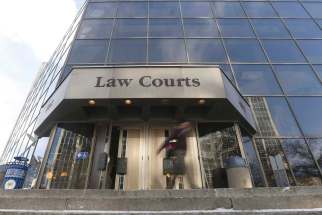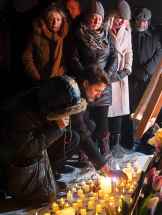Paper trails and emails: city outlines its case for police headquarters fraud
Read this article for free:
or
Already have an account? Log in here »
To continue reading, please subscribe:
Monthly Digital Subscription
$0 for the first 4 weeks*
- Enjoy unlimited reading on winnipegfreepress.com
- Read the E-Edition, our digital replica newspaper
- Access News Break, our award-winning app
- Play interactive puzzles
*No charge for 4 weeks then price increases to the regular rate of $19.00 plus GST every four weeks. Offer available to new and qualified returning subscribers only. Cancel any time.
Monthly Digital Subscription
$4.75/week*
- Enjoy unlimited reading on winnipegfreepress.com
- Read the E-Edition, our digital replica newspaper
- Access News Break, our award-winning app
- Play interactive puzzles
*Billed as $19 plus GST every four weeks. Cancel any time.
To continue reading, please subscribe:
Add Free Press access to your Brandon Sun subscription for only an additional
$1 for the first 4 weeks*
*Your next subscription payment will increase by $1.00 and you will be charged $16.99 plus GST for four weeks. After four weeks, your payment will increase to $23.99 plus GST every four weeks.
Read unlimited articles for free today:
or
Already have an account? Log in here »
Hey there, time traveller!
This article was published 10/01/2020 (2158 days ago), so information in it may no longer be current.
It’s hard to escape the irony.
A large downtown Winnipeg building designed to house the city police officers who uphold the law is allegedly built on a foundation of fraud on the scale of millions of dollars.
Beyond the precise legal language in a 57-page statement of claim filed Jan. 6 in Manitoba Court of Queen’s Bench, as well as the hundreds of pages of affidavits and supporting documents, the City of Winnipeg paints a damning picture of the Winnipeg Police Service headquarters construction scandal.
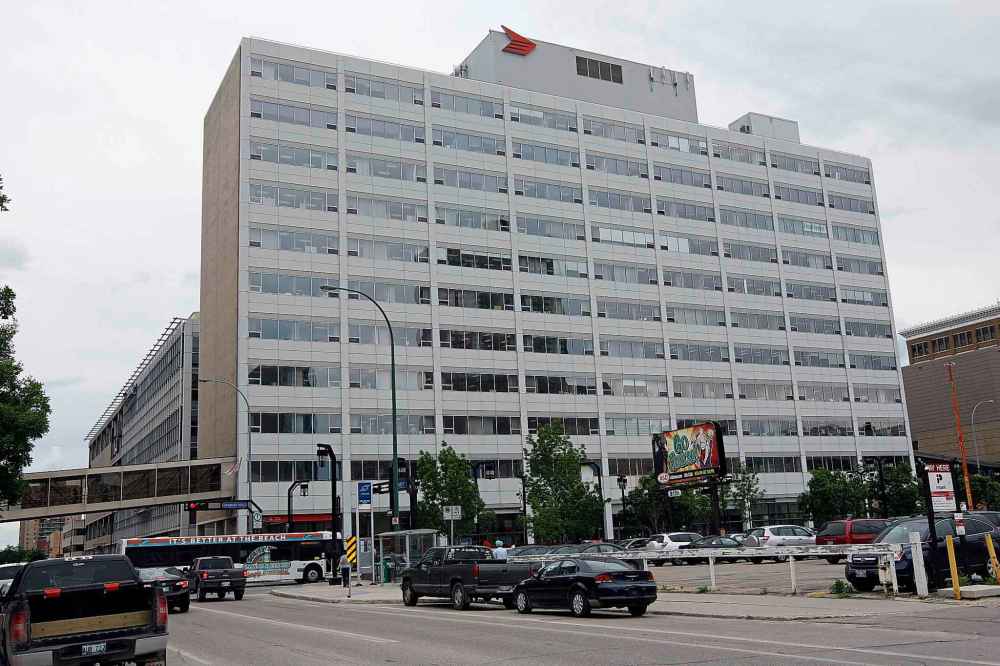
At its heart, the city is now saying its former chief administrative officer, in partnership with construction heavyweights, was instrumental in a scheme to defraud taxpayers.
Those allegations haven’t been proven in court, nor have statements of defence been filed.
The city took the unusual step of suing after Manitoba prosecutors decided not to proceed criminally and the province refused to hold a public inquiry.
The construction scandal has played out for more than a decade. In its early days, no one knew what twists and turns would unfold.
“It’s going to be a great thing for downtown. At the end of the day, it’s a 600,000-square-foot facility we could never build for this kind of money.” — then-Winnipeg chief administrative officer Phil Sheegl, Dec. 8, 2011
According to the city’s statement of claim, at some point during the construction, a total of roughly $400,000 was paid in kickbacks to Winnipeg-based Triple D Consulting Services
Truer words have perhaps never been spoken.
Before it erupted into a scandal, the project began innocently, when the outer facade of the service’s former headquarters, the Public Safety Building, began breaking off.
Instead of costly repairs to the PSB, city council decided in 2009 it would be more cost effective if it purchased the former Canada Post building warehouse and tower on Graham Avenue for $31.6 million. Council also budgeted $105 million for the renovations of the building that would become the future WPS headquarters.
By the end of 2011, the entire $137.1-million contract was awarded to Caspian Construction by then-chief administrative officer Phil Sheegl. (Earlier in 2011, council had awarded a $50,000 construction-management contract to the joint venture of Caspian Construction and Akman Construction, but Akman later backed out.)
The contract Sheegl signed when he became Winnipeg’s top bureaucrat had him agree “to act honestly, in good faith, and in a manner not in conflict with, but in the best interests of the city.”
That was the narrative delivered to the public, but the city says in its court documents “a scheme” was already in play behind the scenes.
Even before the city issued its request for proposal for Phase 1 of the construction management services on Nov. 18, 2010, it says many of the key players listed in the court documents got together and “designed, orchestrated and implemented a scheme to defraud the city.”
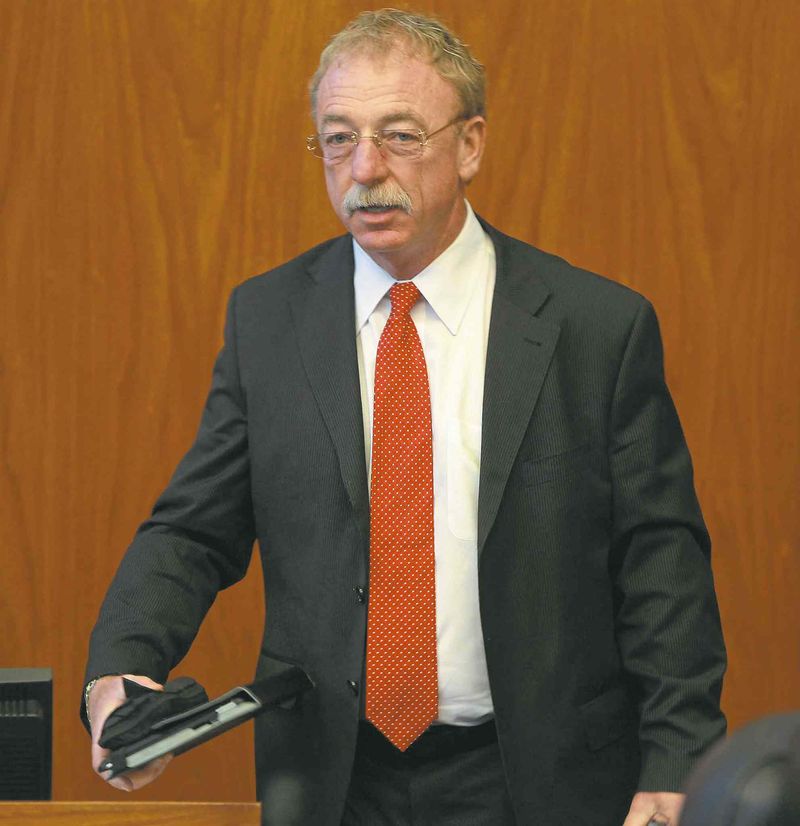
They included the principals of Caspian Construction — president Armik Babakhanians, director Shaun Babakhanians, and officer manager Pamela Anderson — along with Peter Giannuzzi, secretary, director and shareholder of Fabca-PMG construction company, but also at the time a Caspian employee, and Ossama Abouzeid, president of Dunmore Corp., an investment and holding company.
The damning scenario painted by the city alleges participants decided they would create fraudulent and inflated sub-trade quotes, as well as invoices “so as to wrongfully inflate the cost of the project.” They also allegedly decided to change “actual, bona fide sub-trade quotes and/or invoices” to increase the project cost and that all of these bogus documents would be approved.
Kickbacks were woven in, as the group determined they would all receive “secret commissions and other benefits,” the court documents say.
The group also agreed on who else would receive these payments — Sheegl, his companies, and other unknown people — “in return for their participation and complicity in the scheme,” the city says.
—
The City of Winnipeg’s case is based, in part, on a paper trail.
Sheegl agreed on Dec. 10, 2010, to meet with Armik Babakhanians and Anderson at Caspian’s headquarters. Six days later, Sheegl sends Babakhanians what he calls “a blind copy of a confidential email. Please be careful with it. It’s part of my strategy to get this done for you.”
“It is hard for me to imagine why there isn’t a public inquiry. We’re talking about millions of dollars in public money and taxpayers want answers.”–Todd MacKay, prairie director of the Canadian Taxpayers Federation
Later, Babakhanians emails Sheegl saying: “We really want this project.”
He receives the response: “I know and you know I will do everything I can to help us all succeed here together.”
Caspian and Akman submit a proposal to the city’s bid request on Jan. 18, 2011. Less than a month later, the city chose this “joint venture” bid, with Caspian ultimately being assigned the sole contractor June 14 after Akman backed out.
Just a month after Sheegl was promoted to CAO in May 2011, he chose, without a competitive bid process, Dunmore and hired Abouzeid as the project director to help the city create a guaranteed maximum price contract.
Sheegl and Abouzeid then began negotiations with Armik and Shaun Babakhanians, which resulted in Caspian bringing to the city a proposal for a guaranteed maximum price of $137.1 million.
Nine days later, Caspian sent a $200,000 cheque to one of its subcontractors, Mountain Construction, which is also named in the city lawsuit. About the same time, Mountain sent a $200,000 cheque to Sheegl-controlled company FSS. Armik Babakhanians also paid Sheegl, or an Arizona corporation owned by Sheegl, $327,000 for a partial interest in a property.
Four months later, Sheegl, acting on the city’s behalf, awarded the construction contract to Caspian.

The City of Winnipeg now believes it was persuaded to choose Caspian after kickbacks were paid to Sheegl and his companies, as well as other unknown people.
While the construction costs went over budget during the five years of work, eventually hitting $210 million, the city says the original guaranteed maximum price was already “wrongfully inflated.” That includes the updated agreement, signed in December 2013, which raised the cost of the project to $156 million because of changes the city wanted, and even the work done after the building was damaged by flooding caused by heavy rain in August 2014.
Some invoices were small, but they left a trail.
Caspian submitted a bill for work done by McEwen Brothers for a total of $21,061; an original bill from McEwen shows the work cost $10,035. The word “true” was handwritten on the original bill; “inflated” on the higher bill.
Similarly, an original bill from Wolfrom Engineering for $3,910 was labelled “true,” but a second submitted bill for $15,290 said “inflated”.
And while Tiger Ventures, which performed some of the demolition of the building for Caspian, said it charged $2.3 million for the work, Fabca submitted invoices totalling $20.7 million for demolition work. (The city does say it doesn’t know if other companies could have been involved in the demolition as well.)
Invoices also came in, and were paid, for renovation work which was later believed to have been done to the homes of both Armik and Shaun Babakhanians.
The damning scenario painted by the city alleges participants decided they would create fraudulent and inflated sub-trade quotes, as well as invoices “so as to wrongfully inflate the cost of the project.”
According to the city’s statement of claim, at some point during the construction, a total of roughly $400,000 was paid in kickbacks to Winnipeg-based Triple D Consulting Services, a company whose president and owner was Anderson (Caspian’s office manager), as well as consulting companies owned by AAR employee Peter Chang and GRC Architects employee Patrick Dubuc.
The city believes kickbacks were paid to unnamed others, as well.
In the end, the City of Winnipeg is left with not knowing at this time whether it was the alleged scheme that pushed the project’s costs wildly over budget, or whether the original budgeted figure was already inflated.
“This is one of the items we hope to gain further clarity on as part of our legal action,” civic spokeswoman Felicia Wiltshire said Friday.
Todd MacKay, prairie director of the Canadian Taxpayers Federation, said he can’t understand the province’s motive for not calling a public inquiry.
“It is hard for me to imagine why there isn’t a public inquiry. We’re talking about millions of dollars in public money and taxpayers want answers,” MacKay said. “These types of boondoggles are expensive, so at least you need to get answers so it won’t happen again.”
However, MacKay said he is at least glad a lawsuit has been filed.
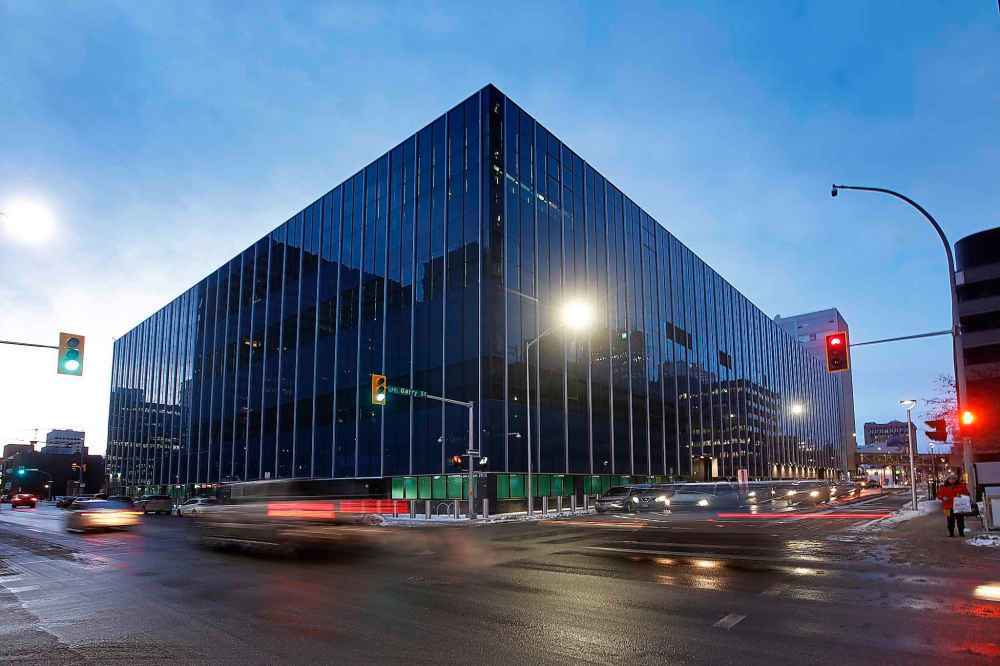
“We need our elected officials to stand up for taxpayers money and Mayor (Brian) Bowman seems to be doing that,” he said.
“It would be nice if the province joined in hand.”
kevin.rollason@freepress.mb.ca
wfppdf:https://wfpquantum.s3.amazonaws.com/pdf/2020/44104_FiledNoticeOfMotion.pdf|City of Winnipeg civil lawsuit:wfppdf
Kevin Rollason is one of the more versatile reporters at the Winnipeg Free Press. Whether it is covering city hall, the law courts, or general reporting, Rollason can be counted on to not only answer the 5 Ws — Who, What, When, Where and Why — but to do it in an interesting and accessible way for readers.
Our newsroom depends on a growing audience of readers to power our journalism. If you are not a paid reader, please consider becoming a subscriber.
Our newsroom depends on its audience of readers to power our journalism. Thank you for your support.
History
Updated on Saturday, January 11, 2020 4:55 PM CST: Fixes typo

